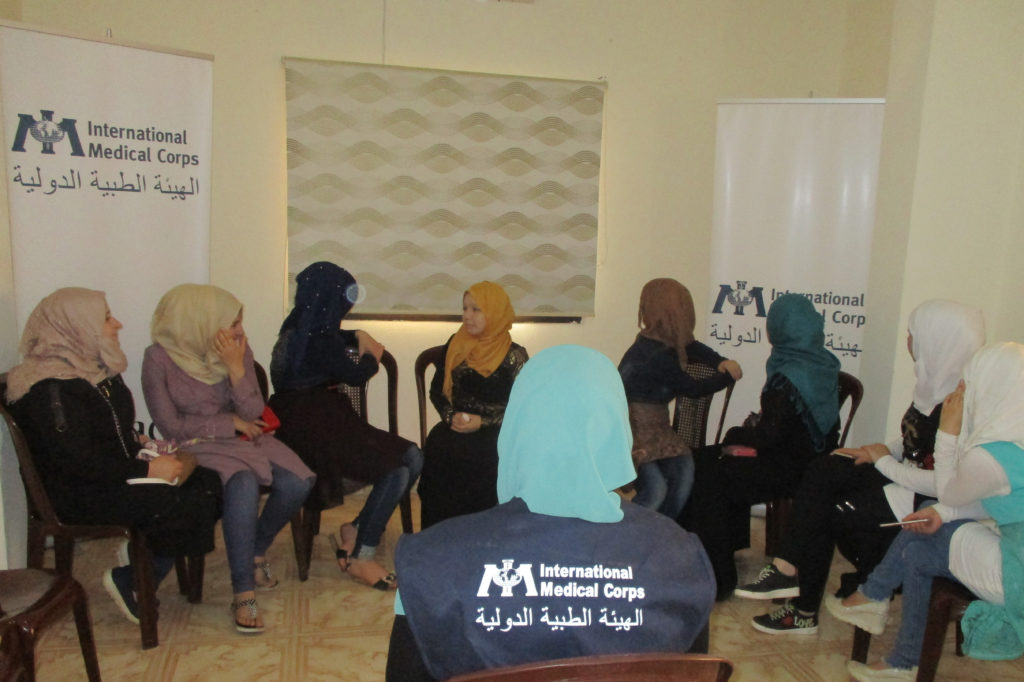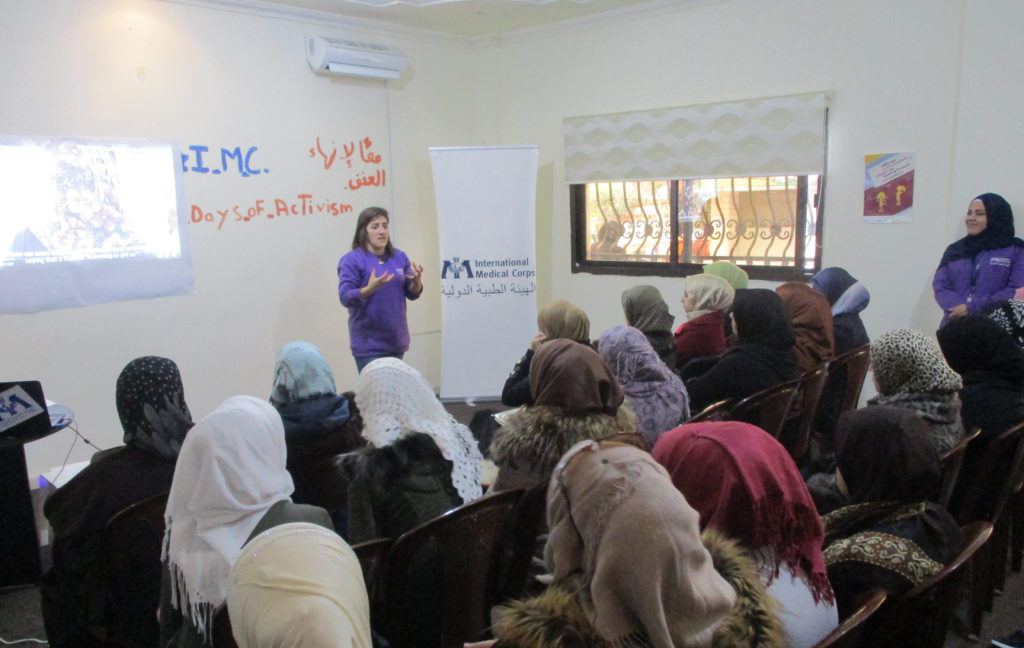Leila*, now a 32-year-old volunteer with International Medical Corps in Lebanon, was 14 years old when her parents divorced. Her mother—who married at age 16—could no longer take her husband’s physical and verbal abuse, and left with the couple’s only son, leaving her two daughters behind.
As soon as her mother left, Leila’s father started taking out his anger on her. Because her sister is 11 years younger than Leila, she was spared their father’s wrath. Looking back now, Leila says,
“I’m grateful that my sister never experienced what my mother and I lived through—but I couldn’t help wishing I was in her shoes.”
Leila’s father was never able to hold down a proper job. He spent most of his days sleeping and spent his nights watching TV. Leila remembers how scarce money was; her mother would sometimes give her some money, but more often than not, Leila’s father would intervene and take it away.
When Leila was 16 years old, she fell in love with an 18-year-old student from a different school. “It was pure love,” she remembers. “I have never felt that way again.” Leila’s father rejected the boy and his family when they wanted to make things official, saying the couple was too young. Leila was heartbroken. This was the first boy she ever loved, and she fantasized about a fairytale life with him.
Leila was 17 when she met the man that she would marry: Amjad, originally from Syria and a few years older than Leila. She was studying at a friend’s house, which Amjad had been hired to paint. Leila remembers Amjad as being “nice and sweet to her.” Despite her youth, she desperately wanted to leave her abusive father, and so she saw Amjad as her way out. In other words, Leila was influenced by common factors experts look for when examining the root causes of child marriage and other gender-based violence (GBV): abuse in the family home and a lack of financial opportunities.
Though he initially refused to let his daughter marry a Syrian man, Leila’s father finally gave them his blessing. The couple got married two months after they met. Leading up to the wedding day, Amjad promised Leila “a full and a happy life.” He told Leila that she would never need a thing from now on—that he would always provide for her, and love and cherish her forever.
Problems started soon after their wedding day. At first, Amjad was verbally abusive, calling her names and saying deliberately mean and hurtful things. Soon, the verbal abuse escalated to beatings. Amjad would spare Leila only during her first two pregnancies, out of fear of hurting their unborn children.
Leila had three children—two boys and a girl—and remembers being subject to a lot of violence and abuse when she was pregnant with her daughter. “My husband hates girls and women; I am a living proof,” she says.
Leila was also sexually abused by her husband in her own home—the place where she should feel safe and protected. “He would [make me] trade sex for money, so I could buy groceries.” Leila says. “This made me feel like an actual slave.”

Leila endured these conditions for years until she learned about International Medical Corps through a volunteer who travels in Lebanon to meet with women in their communities and raise awareness about GBV programs that the organization offers. Encouraged by the volunteer, Leila attended an awareness session where she met Rana, a GBV-case manager who asked her to return to the community center so the two of them could work on her case together.
Rana was extremely important for her personal growth, Leila remembers: “If it wasn’t for Rana, I would still be where I was a year ago.” Rana helped her find the strength and the techniques to set boundaries with her husband. Leila says things started changing as soon as she was confident and strong enough to apply at home what she had learned at the community center.
Feeling truly invested in everything she learned from International Medical Corps, Leila became a volunteer herself as soon as the opportunity arose. Leila now works with women in her own community, raising awareness about GBV.
“I want to help women—just like Rana helped me,” she says.
*The names of the people in this story have been changed for their protection.
